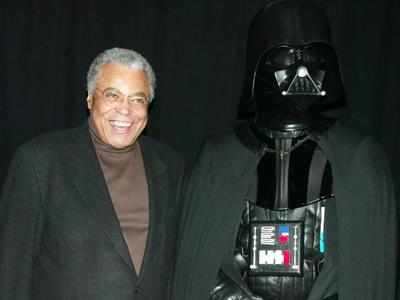
James Earl Jones with his iconic character, Darth Vader, at a charity event for "Star Wars: Episode II — Attack of the Clones."
James Earl Jones, renowned for his distinctive voice and powerful acting, passed away on Monday at the age of 93. His career, spanning decades, left an indelible mark on both stage and screen. Here are five notable facts about the iconic actor:
Darth Vader's voice
When creating the character of Darth Vader for Star Wars, George Lucas initially considered Orson
Welles
for the role.
However, Lucas chose James Earl Jones to avoid the overwhelming recognition that Welles's voice would bring. Jones’s deep, commanding voice became synonymous with Vader, shaping one of cinema's most memorable villains.
Iconic dialogue misquoted
One of the most famous lines from Star Wars Episode V: The Empire Strikes Back is often misquoted. The line, "Luke, I am your father," is frequently misattributed. The actual exchange is:
- Darth Vader: "Obi-Wan never told you what happened to your father."
- Luke Skywalker: "He told me enough! He told me you killed him!"
- Darth Vader: "No. I am your father."
Family legacy in acting
Jones followed in his father's footsteps. His father, Robert Earl
Jones, began his acting career with a role in the 1939 film Lying Lips and appeared in notable films like The Cotton Club and Witness. Robert Earl Jones’s most memorable role was as Luther Coleman in The Sting.
Breaking Barriers
James Earl Jones was a trailblazer in film history. He was the first Black actor to portray a U.S. president in a movie, playing Douglass Dilman in the 1972 film The Man. The film, adapted from an Irving Wallace novel, features Jones as a senator who unexpectedly becomes president after a series of tragic events.
Primal therapy pioneer
Beyond acting, Jones explored primal therapy in 1971, which involves reliving and expressing repressed traumas. He even built a soundproof chamber in his home for this purpose. In his 1993 autobiography Voices and Silences, Jones humorously noted that primal therapy helped him overcome various issues, including a cigarette habit and even hemorrhoids.

 3 months ago
21
3 months ago
21









